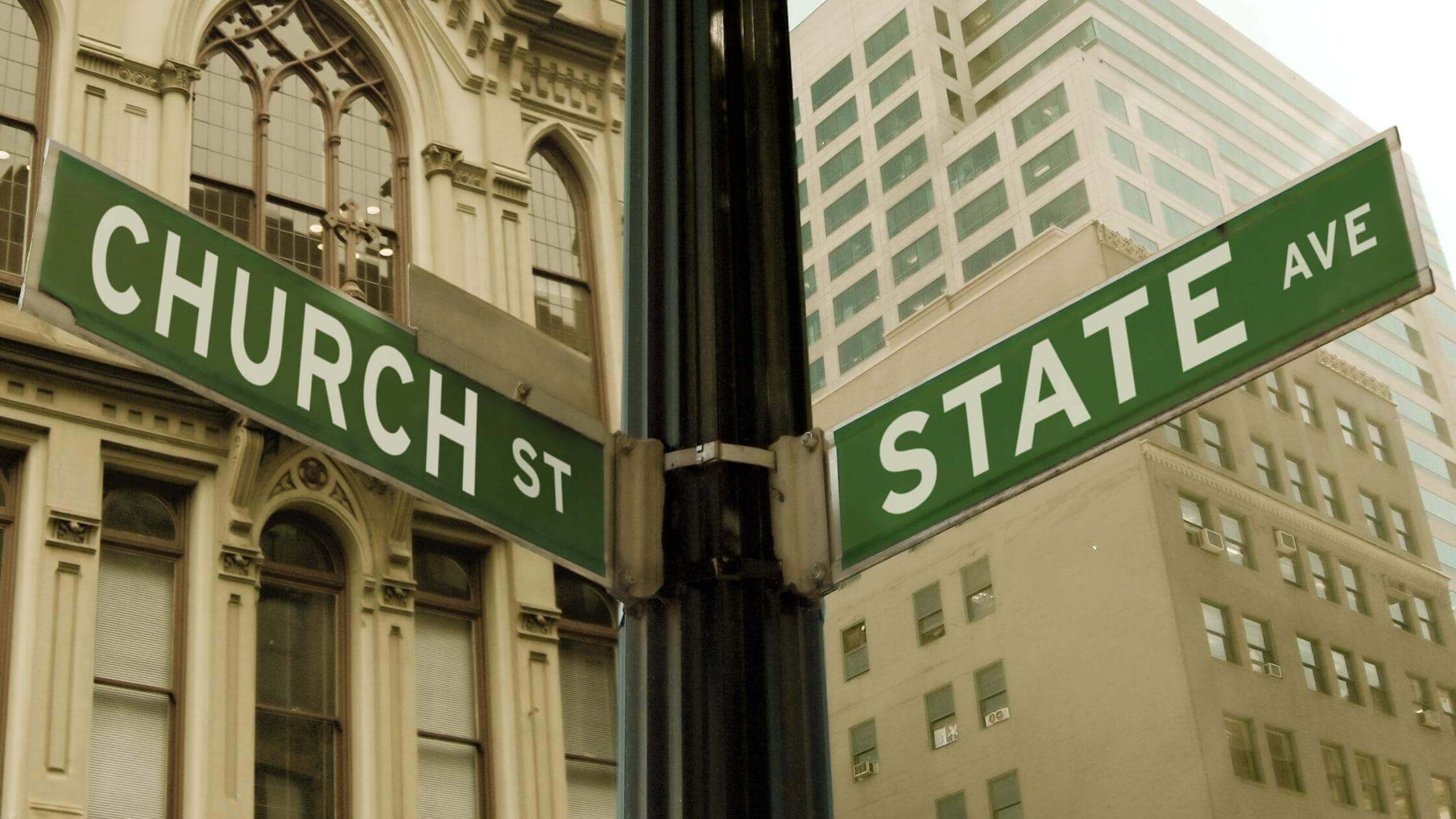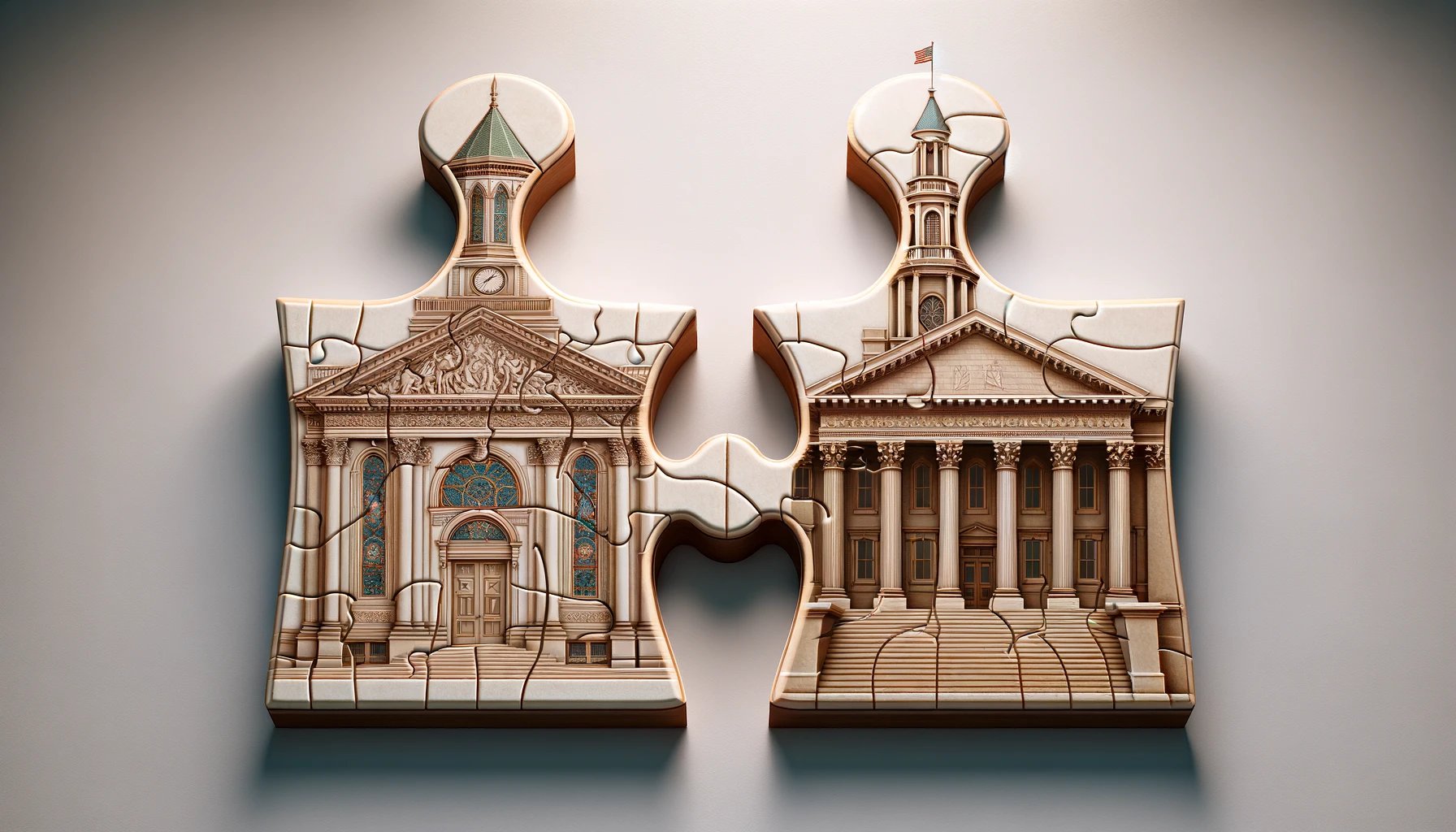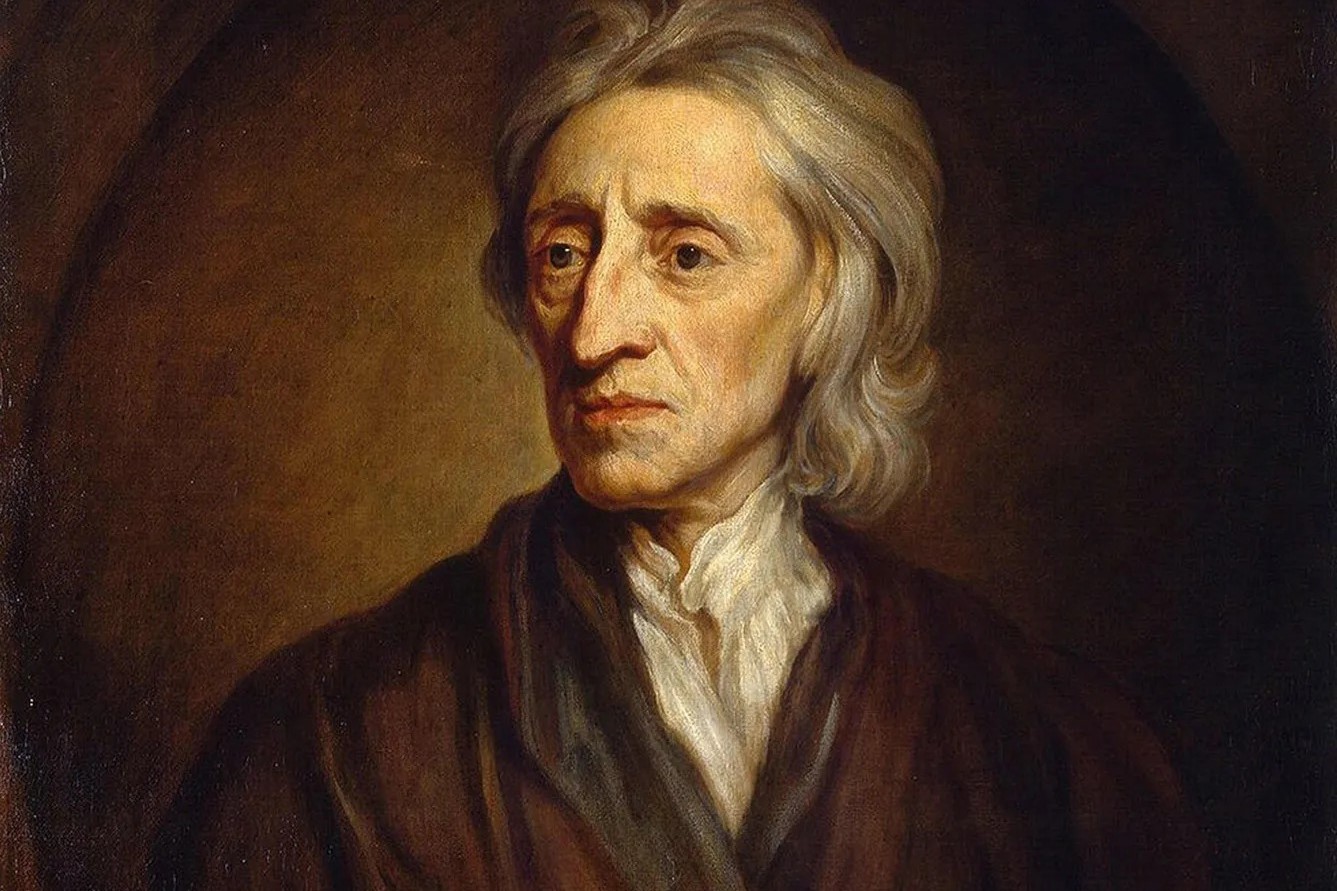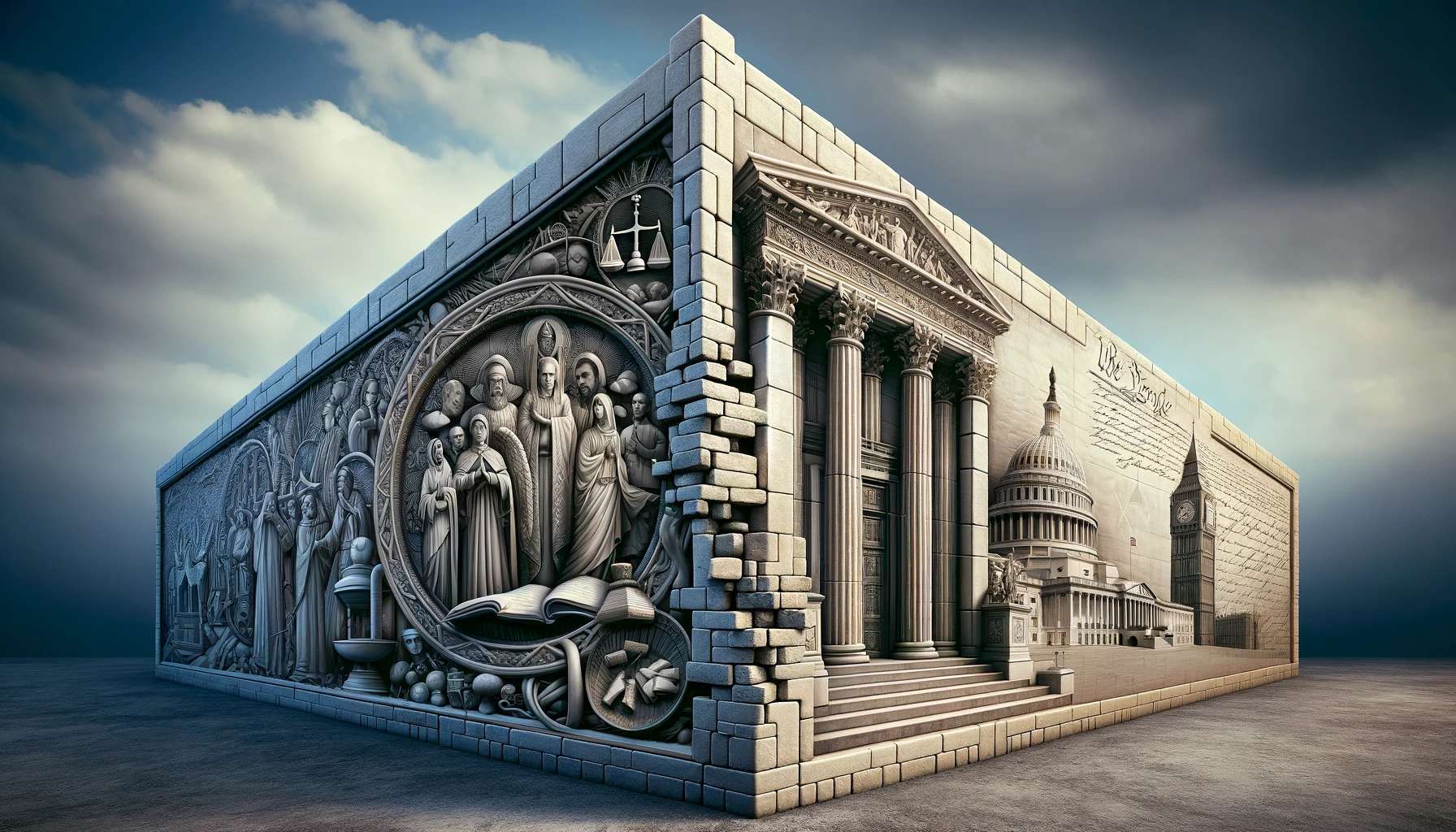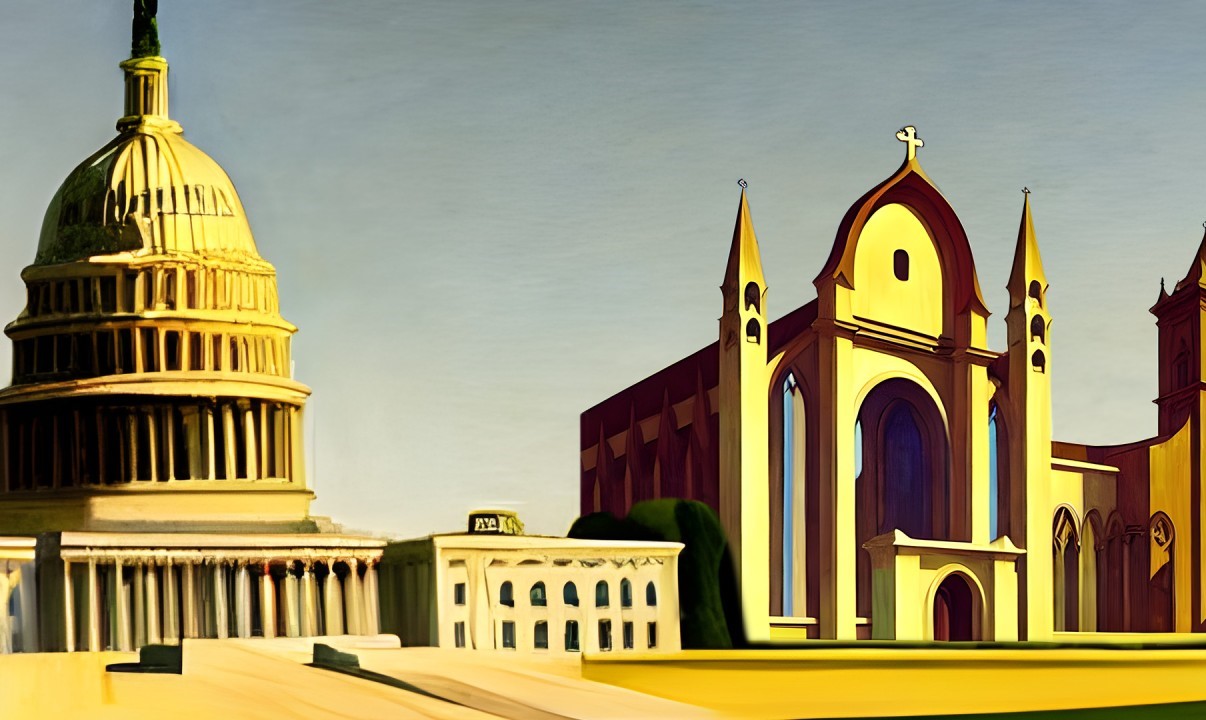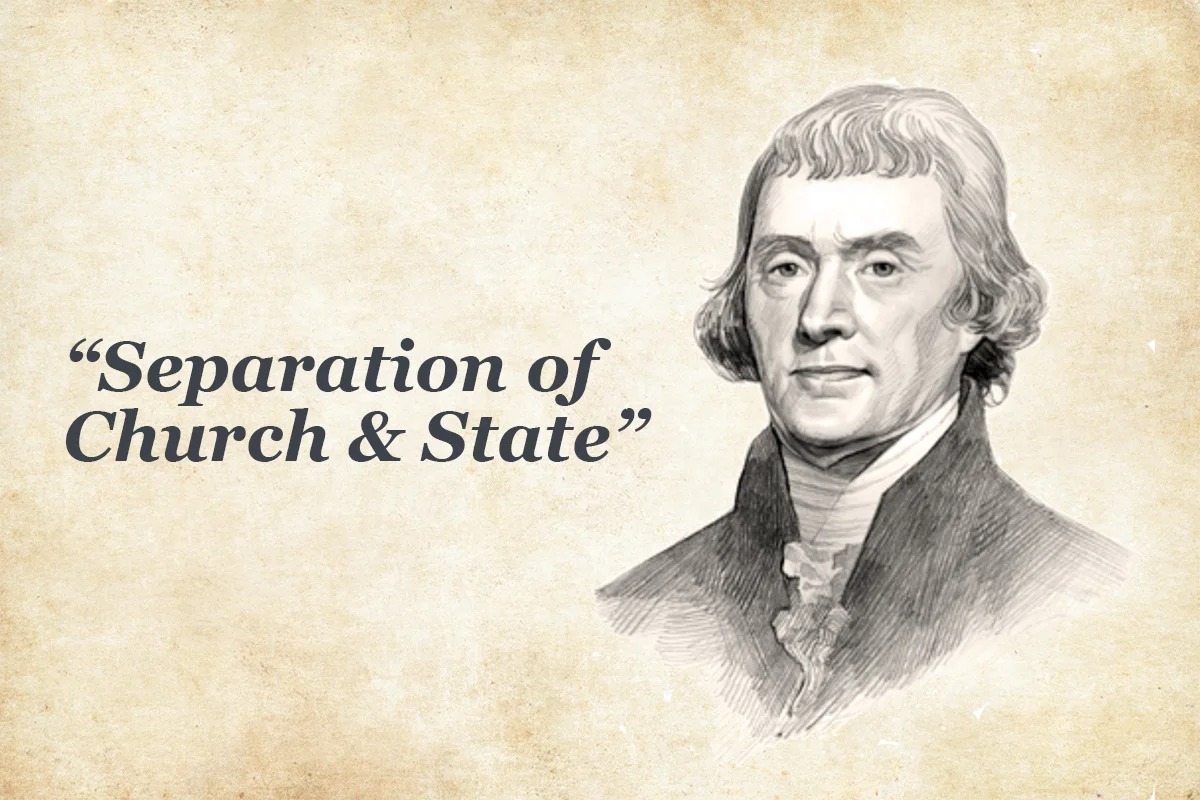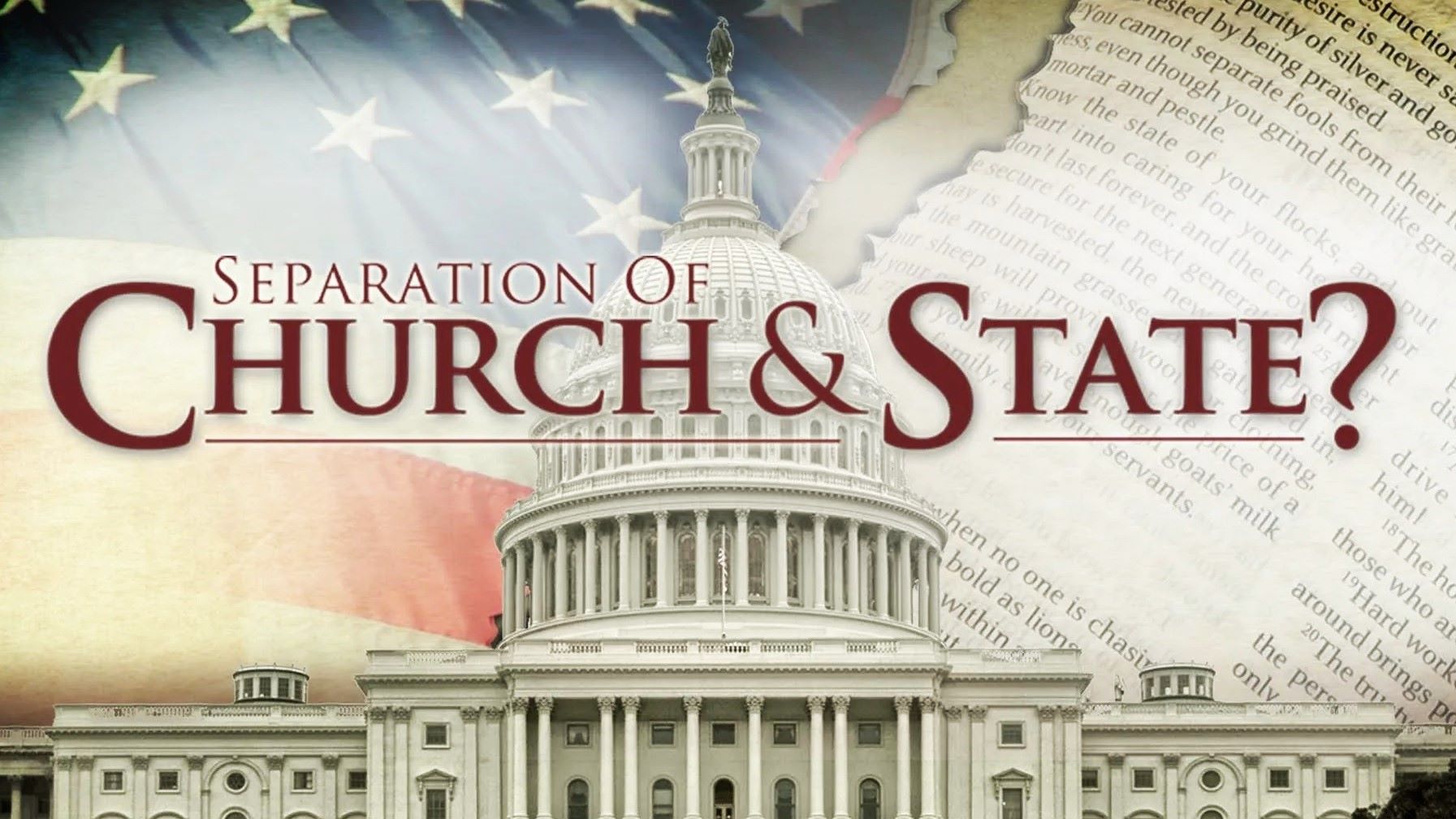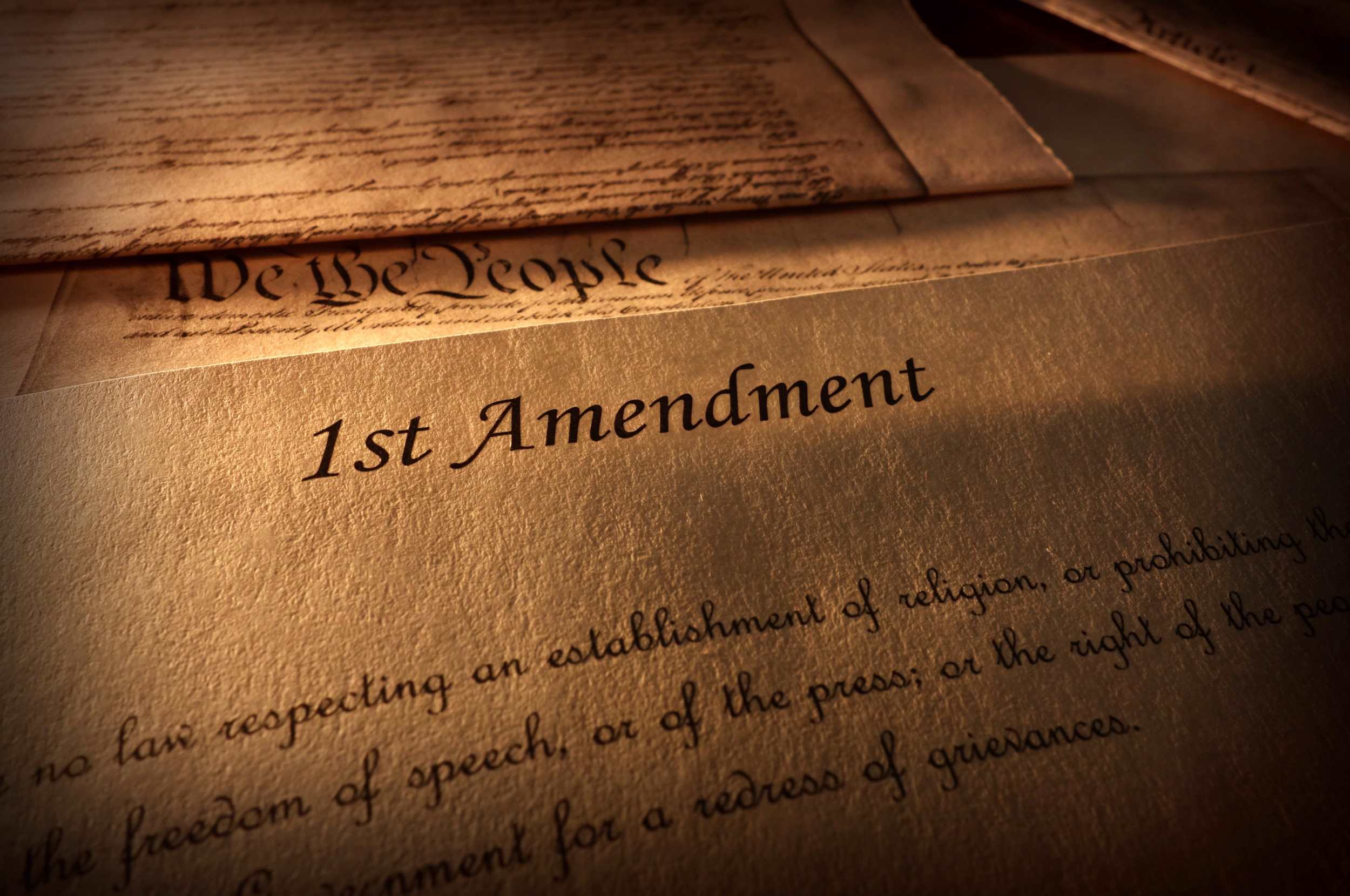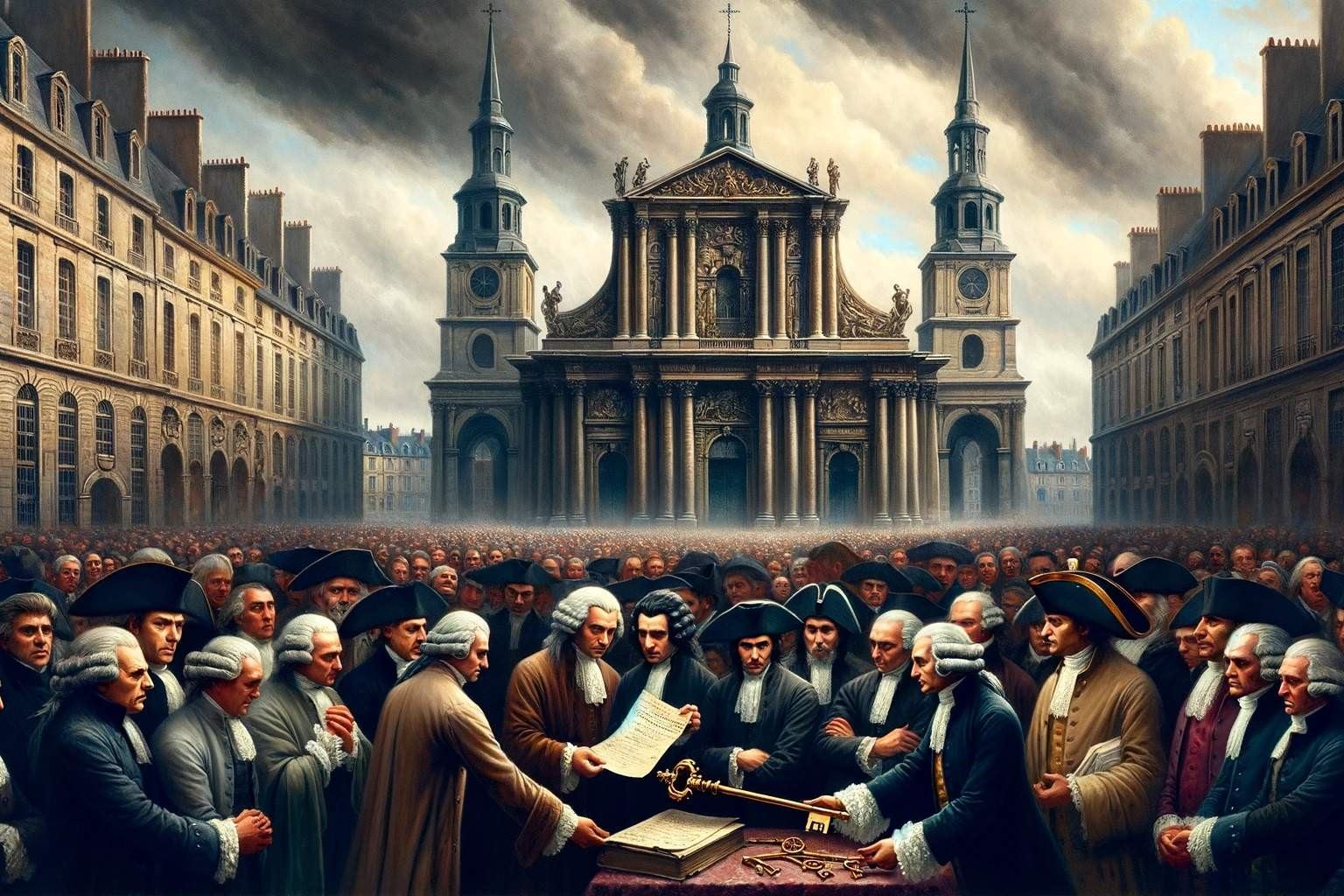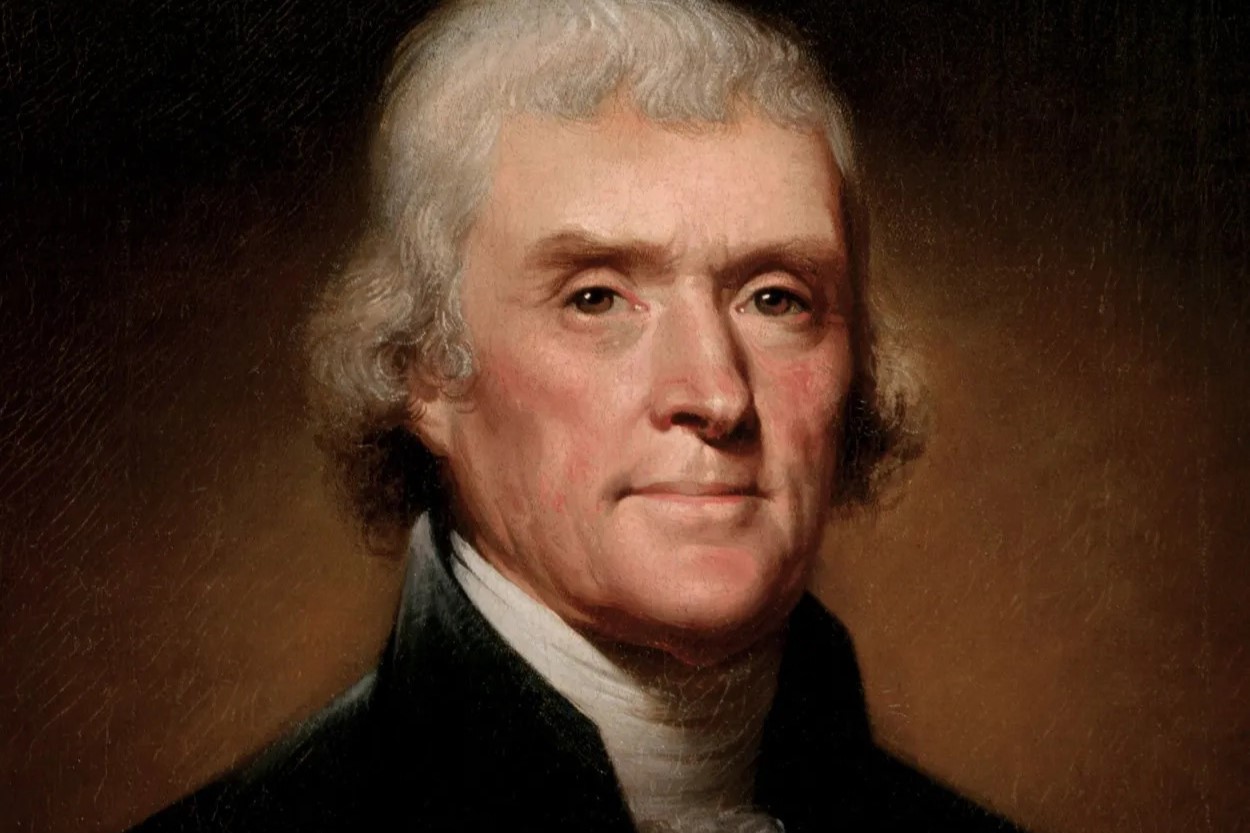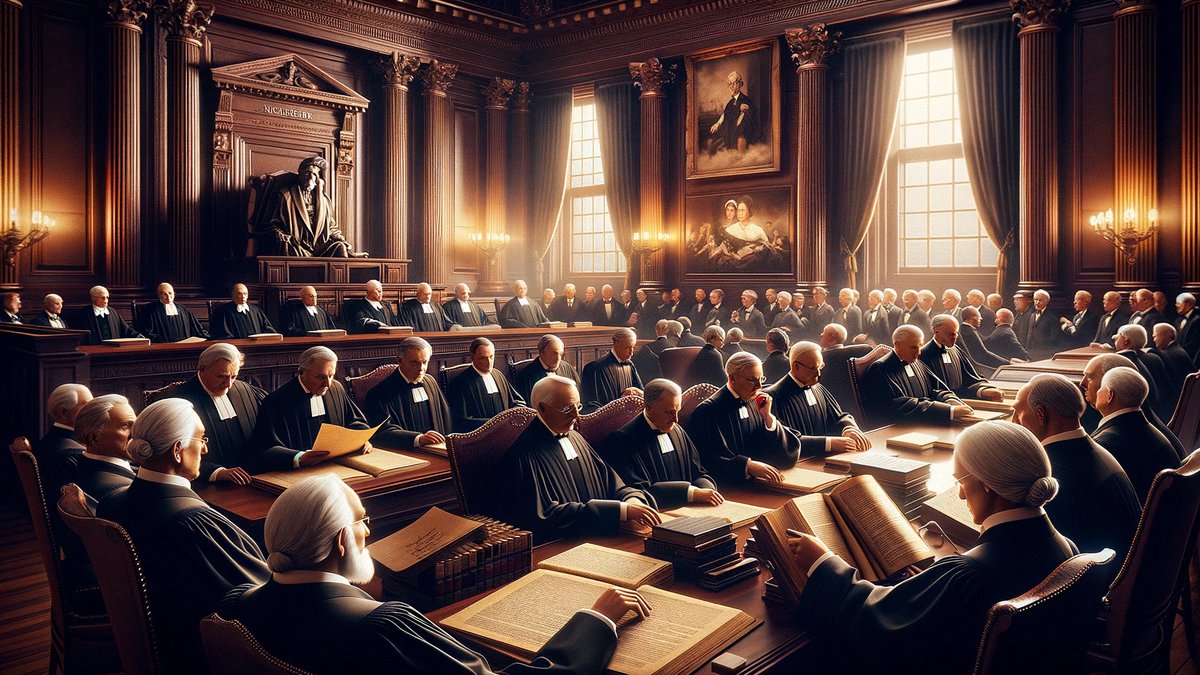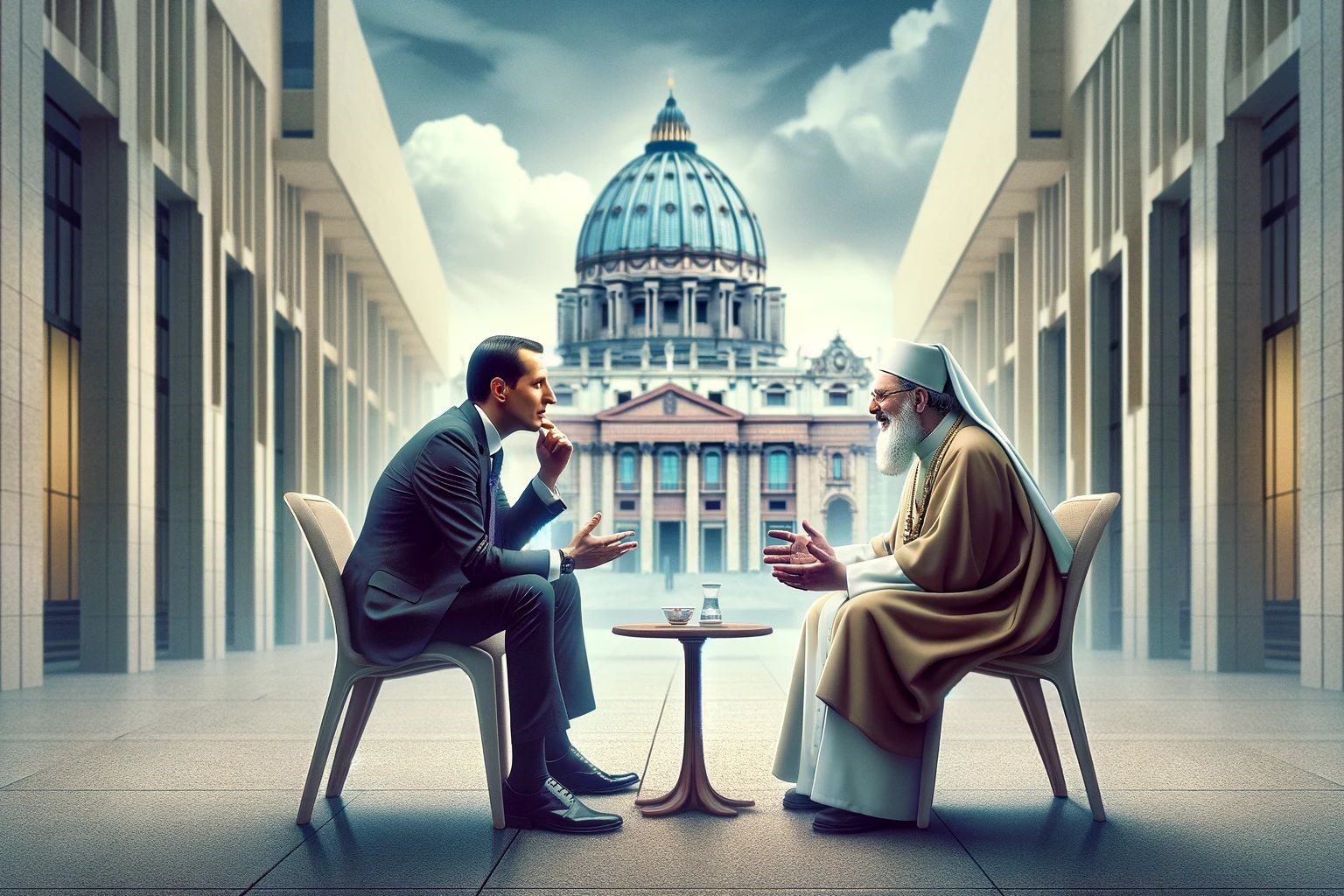Home>Theology and Spirituality>What Problems Can Be Caused By Not Separating Church And State?
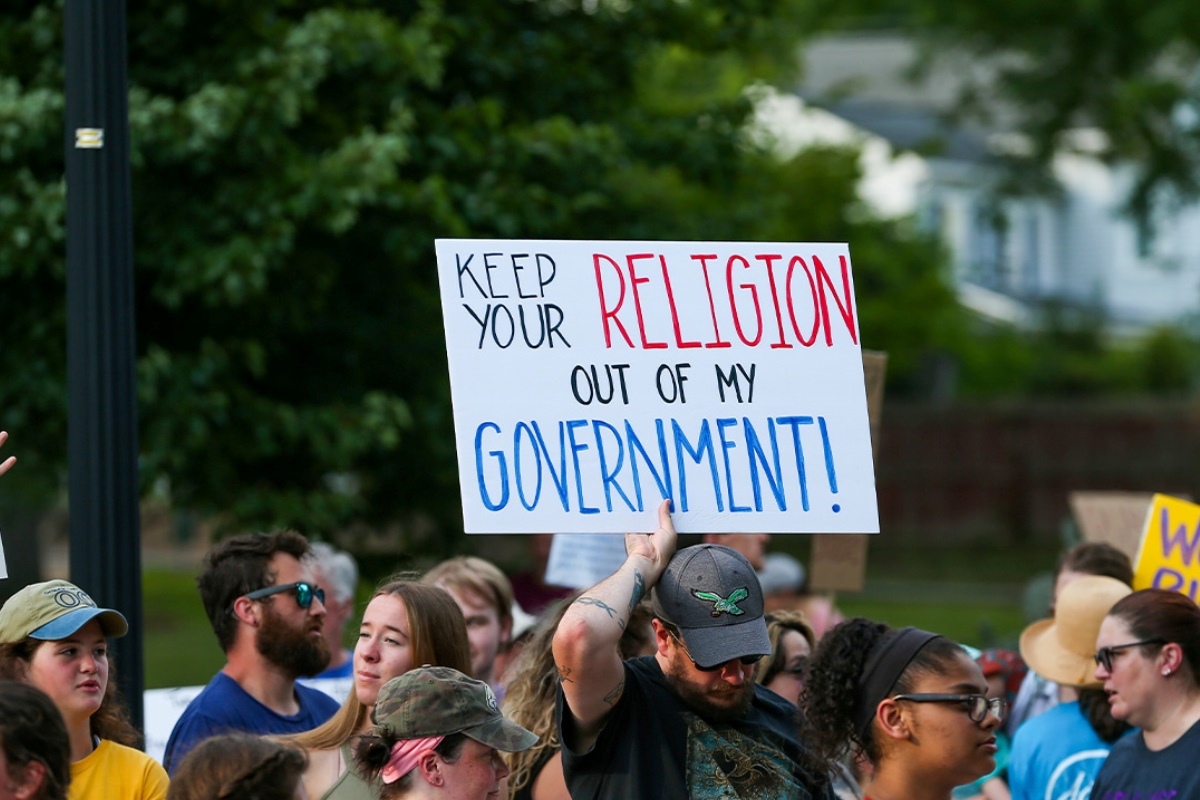

Theology and Spirituality
What Problems Can Be Caused By Not Separating Church And State?
Published: February 12, 2024
Jason DeRose, Managing Editor at Christian.net, uses his expertise in religion and journalism to deepen understanding of faith's societal impacts. His editorial leadership, coupled with a strong academic background, enriches the platform’s diverse content, earning him recognition in both journalism and religious circles.
Learn about the potential problems that can arise from the lack of separation between church and state, and the impact on theology and spirituality. Understand the implications and consequences.
(Many of the links in this article redirect to a specific reviewed product. Your purchase of these products through affiliate links helps to generate commission for Christian.net, at no extra cost. Learn more)
Table of Contents
Introduction
The separation of church and state is a fundamental principle that underpins the democratic and pluralistic fabric of modern societies. This principle, rooted in the First Amendment of the United States Constitution, serves as a cornerstone for ensuring religious freedom, preventing discrimination, and safeguarding the autonomy of both religious institutions and governmental bodies. When this separation is not upheld, a myriad of problems can arise, impacting individuals, communities, and the broader social and political landscape.
In this article, we will explore the potential issues that can emerge when church and state are not properly separated. From limitations on religious freedom to the erosion of equality and fairness, the implications of failing to uphold this crucial division are far-reaching and can have profound effects on society as a whole. By delving into these challenges, we can gain a deeper understanding of the importance of maintaining the separation of church and state in contemporary governance and public life.
Lack of Religious Freedom
The absence of a clear separation between church and state can lead to a lack of religious freedom, infringing upon individuals' rights to practice their faith without undue interference or influence from the government. When religious institutions become intertwined with political entities, there is a risk of favoritism towards certain religious groups, resulting in the marginalization of others. This can manifest in various forms, such as the imposition of specific religious practices or beliefs on the broader population, thereby limiting the freedom of individuals to express and observe their own faith traditions.
Furthermore, without a robust division between church and state, there is a heightened potential for the enactment of laws and policies that privilege one religion over others, or that restrict the religious practices of certain groups. This can create an environment where individuals feel compelled to conform to a particular set of beliefs or face discrimination and marginalization. In essence, the absence of clear separation can lead to the imposition of religious norms on a diverse populace, stifling the rich tapestry of religious expression and belief that is inherent in a pluralistic society.
Moreover, the lack of religious freedom resulting from the entanglement of church and state can have profound implications for minority religious communities. Without proper safeguards in place, these communities may face systemic barriers to practicing their faith, leading to feelings of alienation and disenfranchisement. This can erode the social cohesion and inclusivity that are vital for a harmonious and equitable society.
In summary, the absence of a clear separation between church and state can undermine the fundamental right to religious freedom. It can lead to the privileging of certain religious perspectives, the imposition of specific beliefs on the wider population, and the marginalization of minority religious communities. Upholding the separation of church and state is essential for safeguarding the diverse tapestry of religious expression and belief within a society, ensuring that individuals can practice their faith freely and without undue interference from the government.
Discrimination and Persecution
The intertwining of religious institutions with the mechanisms of state governance can give rise to discrimination and persecution, particularly towards individuals and communities whose beliefs diverge from those endorsed or favored by the government. When the lines between church and state become blurred, there is a heightened risk of discriminatory practices that target individuals based on their religious affiliations or lack thereof.
One of the primary concerns stemming from the lack of separation between church and state is the potential for the institutionalization of discrimination against minority religious groups. Without clear delineation, the dominant religious framework may be enshrined in laws and policies, leading to the marginalization and stigmatization of those who adhere to different faith traditions or hold non-religious worldviews. This can result in systemic inequalities, where individuals are disadvantaged due to their religious beliefs, or lack thereof, in various spheres of public life, including employment, education, and access to social services.
Moreover, the absence of a robust separation between church and state can pave the way for the persecution of individuals who dissent from the sanctioned religious norms. In such scenarios, those who express divergent beliefs or advocate for secular governance may face ostracism, legal repercussions, or social censure. This can create an environment of fear and repression, where individuals are compelled to adhere to specific religious doctrines or risk facing punitive measures, thereby undermining the principles of individual autonomy and freedom of conscience.
Furthermore, the entanglement of religious ideologies with political power can lead to the propagation of discriminatory narratives and attitudes towards certain groups, fostering an environment where prejudice and intolerance are normalized. This can have far-reaching consequences, perpetuating social divisions and hindering the cultivation of a society that embraces diversity and respects the autonomy of individuals to hold their own beliefs.
In essence, the failure to uphold the separation of church and state can engender discrimination and persecution, threatening the rights and dignity of individuals whose beliefs diverge from the sanctioned religious norms. By safeguarding this division, societies can mitigate the risk of institutionalized discrimination and persecution, fostering an environment where individuals are free to express their beliefs without fear of reprisal or marginalization.
Political Influence on Religious Beliefs
The intertwining of political power with religious beliefs can have profound implications for the autonomy and diversity of religious expression within a society. When the separation of church and state is not upheld, there is a heightened risk of political entities exerting influence over religious doctrines and practices, potentially leading to the erosion of individual agency and the imposition of specific beliefs on the populace.
One of the primary concerns arising from the lack of clear separation between church and state is the potential for political actors to instrumentalize religious narratives and symbols for their own agendas. In such scenarios, religious beliefs may be co-opted to serve political interests, leading to the manipulation of faith-based sentiments to garner support or justify policy decisions. This can distort the authentic teachings and values of religious traditions, reducing them to mere tools for political expediency.
Moreover, the entanglement of political power with religious beliefs can result in the privileging of certain faith perspectives over others, creating an environment where specific religious doctrines are endorsed or promoted by the government. This can marginalize individuals and communities whose beliefs diverge from those sanctioned by the political authorities, leading to a narrowing of the religious discourse and limiting the freedom of individuals to adhere to their own faith traditions.
Furthermore, the lack of separation between church and state can give rise to the imposition of religious norms on public policy and governance, potentially infringing upon the rights and freedoms of individuals who do not adhere to those specific beliefs. This can manifest in various forms, such as the enactment of laws that reflect particular religious doctrines, thereby constraining the autonomy of individuals to make decisions based on their own ethical and moral frameworks.
In essence, the political influence on religious beliefs resulting from the absence of a clear separation between church and state can undermine the diversity and autonomy of religious expression within a society. By upholding this division, societies can mitigate the risk of political actors co-opting religious narratives for their own agendas, safeguarding the authentic plurality of religious beliefs and ensuring that individuals are free to practice their faith without undue political interference.
Inequality and Unfair Treatment
The absence of a clear separation between church and state can give rise to pervasive inequality and unfair treatment within society. When religious institutions wield significant influence over governmental affairs, there is a heightened risk of privileging certain religious perspectives while marginalizing others. This can result in systemic disparities that impact individuals and communities, perpetuating a climate of inequity and injustice.
One of the primary concerns stemming from the lack of separation between church and state is the potential for the enactment of laws and policies that favor specific religious beliefs or practices. This can lead to institutionalized inequalities, where individuals who adhere to different faith traditions or hold non-religious worldviews face barriers to full participation in various aspects of public life. Such disparities can manifest in areas such as employment, education, healthcare, and access to social services, creating a landscape where individuals are treated unequally based on their religious affiliations or lack thereof.
Moreover, the absence of a robust division between church and state can perpetuate unfair treatment towards minority religious communities. Without clear safeguards in place, these communities may face systemic barriers to exercising their religious freedoms, leading to their marginalization and exclusion from the broader societal fabric. This can result in a climate of injustice, where certain groups are denied equal opportunities and access to resources based on their religious beliefs, contravening the principles of fairness and equality that are foundational to a just and inclusive society.
Furthermore, the entanglement of religious institutions with the mechanisms of state governance can perpetuate discriminatory practices that disadvantage individuals who do not conform to the sanctioned religious norms. This can lead to a cycle of inequality, where certain groups are systematically disadvantaged and denied the same rights and opportunities as others, solely based on their religious beliefs or lack thereof.
In essence, the lack of separation between church and state can engender pervasive inequality and unfair treatment, undermining the principles of justice and equity within society. By upholding the division between church and state, societies can strive to mitigate the risk of institutionalized disparities, fostering an environment where individuals are treated fairly and equitably, irrespective of their religious affiliations or beliefs.
Education and Science
The intertwining of religious ideologies with educational curricula and scientific discourse can have profound implications for the pursuit of knowledge and the cultivation of critical thinking within a society. When the separation of church and state is not upheld in educational institutions, there is a heightened risk of religious doctrines influencing the content and delivery of academic material, potentially impeding the objective exploration of scientific principles and diverse worldviews.
One of the primary concerns arising from the lack of clear separation between church and state is the potential for religious doctrines to permeate educational settings, leading to the privileging of specific religious perspectives over empirical evidence and scientific inquiry. This can manifest in the teaching of creationist narratives in science classrooms, which may conflict with established scientific theories such as evolution. When religious beliefs are given precedence over scientific principles in educational settings, it can undermine the rigorous pursuit of knowledge and critical inquiry, hindering students' ability to engage with evidence-based reasoning and empirical methodologies.
Moreover, the absence of a robust division between church and state in education can lead to the imposition of specific religious doctrines in school policies and practices, potentially infringing upon the rights of students and educators who hold different beliefs. This can create an environment where individuals are compelled to adhere to religious norms that may not align with their personal convictions, thereby limiting their intellectual and academic freedom.
Furthermore, the entanglement of religious ideologies with educational governance can impede the development of a comprehensive and inclusive curriculum that embraces diverse perspectives and fosters a spirit of open inquiry. When religious doctrines exert undue influence on educational policies, there is a risk of marginalizing scientific theories and worldviews that diverge from the sanctioned religious norms, constraining the intellectual growth and exploration of students.
In essence, the lack of separation between church and state in education can hinder the pursuit of knowledge and the cultivation of critical thinking, potentially undermining the foundational principles of academic freedom and empirical inquiry. By upholding this division, societies can strive to mitigate the risk of religious doctrines impeding the objective exploration of scientific principles and diverse worldviews within educational settings, fostering an environment where students are empowered to engage with evidence-based reasoning and diverse perspectives without undue religious influence.
Conclusion
In conclusion, the separation of church and state is a vital safeguard for upholding religious freedom, preventing discrimination and persecution, and preserving the autonomy of both religious institutions and governmental bodies. When this division is not upheld, a myriad of problems can arise, impacting individuals, communities, and the broader social and political landscape.
The absence of a clear separation between church and state can lead to a lack of religious freedom, infringing upon individuals' rights to practice their faith without undue interference or influence from the government. This can result in the imposition of specific religious practices or beliefs on the broader population, limiting the freedom of individuals to express and observe their own faith traditions.
Furthermore, the intertwining of religious institutions with the mechanisms of state governance can give rise to discrimination and persecution, particularly towards individuals and communities whose beliefs diverge from those endorsed or favored by the government. This can lead to systemic inequalities, where individuals are disadvantaged due to their religious beliefs, or lack thereof, in various spheres of public life.
Moreover, the entanglement of political power with religious beliefs can have profound implications for the autonomy and diversity of religious expression within a society. This can lead to the manipulation of faith-based sentiments to garner support or justify policy decisions, potentially undermining the authentic teachings and values of religious traditions.
The absence of a clear separation between church and state can also give rise to pervasive inequality and unfair treatment within society, perpetuating a climate of inequity and injustice. This can result in systemic disparities that impact individuals and communities, leading to their marginalization and exclusion from the broader societal fabric.
Furthermore, the intertwining of religious ideologies with educational curricula and scientific discourse can impede the pursuit of knowledge and the cultivation of critical thinking within a society. This can undermine the rigorous pursuit of knowledge and critical inquiry, hindering students' ability to engage with evidence-based reasoning and empirical methodologies.
In essence, upholding the separation of church and state is essential for safeguarding religious freedom, preventing discrimination and persecution, preserving the autonomy of religious institutions, and fostering an environment where individuals are treated fairly and equitably, irrespective of their religious affiliations or beliefs. By maintaining this division, societies can strive to mitigate the risk of religious doctrines impeding the objective exploration of scientific principles and diverse worldviews within educational settings, fostering an environment where students are empowered to engage with evidence-based reasoning and diverse perspectives without undue religious influence.
The preservation of the separation of church and state is crucial for nurturing a society where diverse religious beliefs and non-religious worldviews are respected, and where individuals are free to practice their faith without fear of discrimination or undue influence from the government. It is a cornerstone of a democratic and inclusive society, promoting the principles of religious freedom, equality, and the pursuit of knowledge for the betterment of all.
